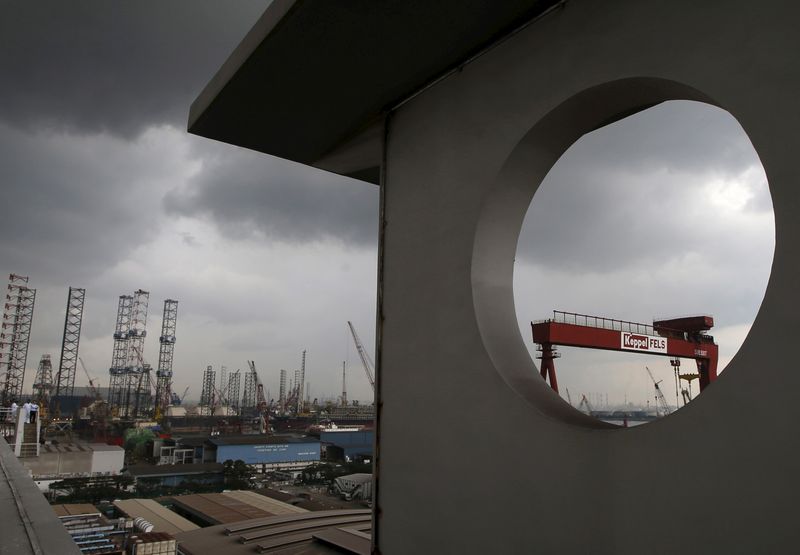By Roushni Nair and Sameer Manekar
(Reuters) - Singapore's Keppel (OTC:KPELY) Corp posted a steeper-than-expected drop in annual profit on Thursday hurt by its urban development unit, but forecast China's easing market conditions and policy support to the real estate sector would boost market sentiment.
The conglomerate, which traces its roots to a small ship repair yard corporatised in 1968, said its urban development unit of took a hit by slower home sales and lower contributions from its China trading projects, as well as lower fair value gains from investment properties.
As a result, its net profit dropped to S$927 million ($709.91 million) for the year ended Dec. 31, from S$1.02 billion a year ago. That also missed analysts' average estimate of S$948.70 million, according to Refinitiv IBES.
The urban development arm reported a profit of S$282 million, compared to S$763 million a year earlier.
China's property sector has been lurching from one crisis to another, heavily weighing on the country's growth over the past year. However, recent policy shifts to bring back the debt-laden sector on track for growth has improved outlook.
China's market conditions are expected to ease, "with stronger domestic demand and higher growth expected post the zero-COVID policy" and as the real estate sector benefits from the constructive policies, the company said in a statement.
Despite headwinds in unit Keppel Land's key markets, particularly China, Keppel Group's asset monetisation remained healthy, collecting S$3.6 billion of asset monetisation in cash over S$4.6 billion announced under the programme launched in October 2020.
Group revenue from continuing operations rose to S$6.62 billion from S$6.61 billion a year ago, underpinned by higher contributions from asset management and energy & environment units.
The company, which is in the final stages of selling its offshore and marine business to Sembcorp Marine, declared a final dividend of 18 Singapore cents per share, down from 21 cents last year.

($1 = 1.3058 Singapore dollars)
(This story has been corrected to clarify that asset monetisation was launched in October 2020, not September 2020, and was by Keppel Group and not unit Keppel Land in paragraph 7. This story has also been corrected to say Keppel declared a final dividend of 18 Singapore cents per share, down from 21 cents last year, and not up from 15 cents in paragraph 9)